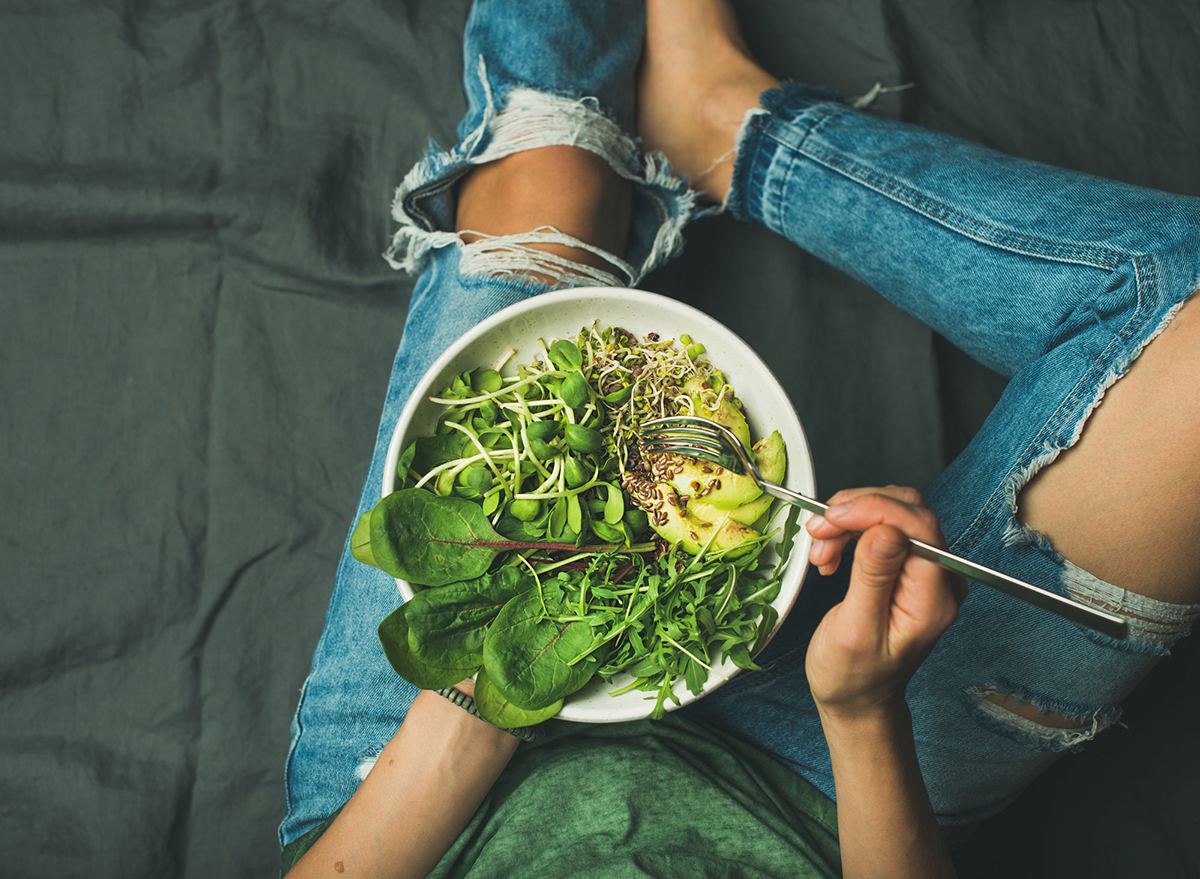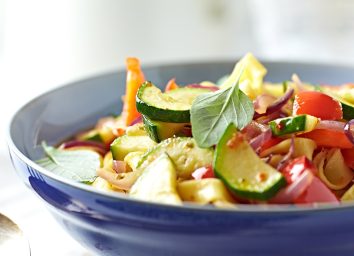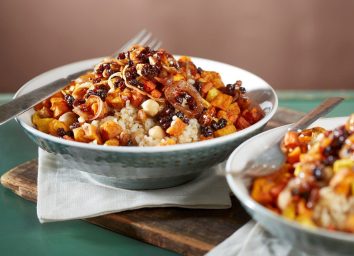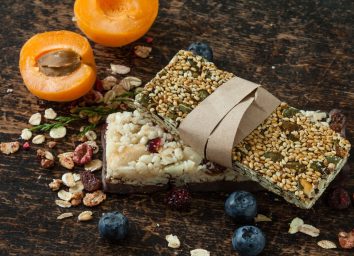The Supplements Vegans Need in Their Diet, Recommended by a Registered Dietitian

There are many reasons one may choose a plant-based diet, including ethical, food safety, ecological, and health benefits. Two of the most common plant-based diets are veganism and vegetarianism. Veganism is a style of eating that focuses on plant-based food items and eliminates all meat, fish, and poultry, and foods considered to be animal by-products, like eggs and dairy products. Vegetarianism is slightly less restrictive and allows certain types of animal protein, like fish, eggs, and dairy, but not meat or poultry.
Research over the years has consistently shown that plant-based diets, including vegetarian and vegan, can reduce the risk for many chronic diseases. Because plant-based diets tend to be higher in fiber than an omnivorous diet, many of the health benefits are seen in improved digestive health and reducing the risk of colorectal cancer. Other health benefits include reduced risk of heart disease and lower blood pressure, and a lower risk for developing type 2 diabetes.
While there are many benefits to following a plant-based diet, there are a few concerns that arise at the same time. Nutrient deficiencies and too little protein are two concerns with this style of eating, which is why there’s a need for supplements.
What nutrients need to be supplemented?
Along with protein, there are specific nutrients known to be lower in a vegan diet. These include B12, iron, calcium, and zinc. All of these nutrients can be found in a plant-based diet, although likely in lower concentrations compared to an omnivorous diet.
Animal-based foods provide a rich source of protein and specific nutrients, like heme iron. While it is possible to get adequate protein with plant-based foods, it does require more diligence in choosing the correct combinations of these foods to meet protein needs.
How do you supplement protein?
The Recommended Dietary Allowance (RDA) for protein stands at 0.8 grams per kilogram (0.36 per pound) of body weight, or about 54 grams for a 150-pound adult. This intake is meant to meet minimum requirements for protein functions within the body. However, certain people, like those who are highly active, may require more protein.
Here are some vegan diet supplements for protein that can help you reach your daily minimum:
- 2 oz of mixed nuts (12 g)
- 1 cup of beans (41 g)
- 1 cup of soy milk (8 g)
- ½ cup of tofu (10 g)
- ½ cup of oats (16.9 g)
- 1 oz. of chia seeds (4.7 g)
To pack more protein in a small volume of food, and for fewer calories, a plant-based protein powder, like brown rice, soy, and pea may be beneficial. Many companies have also started to create plant-based alternatives to many common animal-based foods, like yogurt and eggs.
How do you supplement calcium?
The majority of calcium in your body is found in bone. The calcification and mineral density is what creates the hardness of bones and keeps them strong. Insufficient amounts of calcium over time can be a risk factor for osteoporosis, and because calcium plays a major role in muscle contractions and nerve impulses, deficiency symptoms may also lead to convulsions and heart failure.
Here are some RDA plant-based sources of calcium that can help you reach your daily minimum (between 1,000 mg for younger adults and 1,200 mg for elders):
- 1 cup soy milk, calcium-fortified (299 mg)
- 6 oz. orange juice, calcium-fortified (261 mg)
- 1/2 cup tofu, with calcium sulfate (253 mg)
- 1/2 cup turnip greens, cooked (99 mg)
- 1 cup kale, cooked (94 mg)
- 1 slice bread (73 mg)
- 1 tortilla corn, 6-inch (46 mg)
For vegetarians, the best source of calcium would come from dairy products like 8 ounces of plain, low-fat yogurt (415 mg), 1.5 ounces of mozzarella cheese (333 mg), and 8 ounces of nonfat milk (299 mg)
How do you supplement iron and vitamin B12?
B12 and iron are two nutrients that play important roles in blood health, and when deficient, forms of anemia may arise and may cause an increased heart rate and leave one feeling fatigued and lethargic.
The RDA for iron is actually for females at 18 mg, and only 8 mg for males. Here are plant-based foods rich in iron for your daily intake:
- 1 cup white beans (8 mg)
- 3 oz. 45-69% dark chocolate (7 mg)
- 1/2 cup lentils (3 mg)
- 1/2 cup spinach (3 mg)
- 1/2 cup tofu (3 mg)
- 1/2 cup kidney beans (3 mg)
The RDA for B12 is 2.4 mcg for both men and women. Vegan diet supplements include:
- 1 serving fortified breakfast cereal (1.5 mcg)
- 1 serving fortified nutritional yeast (6.0 mcg)
How do you supplement zinc?
Zinc is a mineral that assists in more than 100 enzyme systems, the immune system, and gene regulation. An adult with zinc deficiency may experience an increased risk of illness and infections, while an adolescent with a deficiency may experience more severe symptoms, like growth retardation and delayed sexual maturation.
The RDA for zinc is 11 mg for men and 8 mg for women, on average. All of these nutrients naturally occur in some plant-based foods and others are fortified into common foods, like cereal, bread, and orange juice. Other foods high in zinc you can supplement include:
- 3/4 cup fortified breakfast cereal (3.8 mg)
- 3.5 oz. 70-85% dark chocolate bar (3.3mg)
- 1/2 cup baked beans (2.9 mg)
- 1 oz. pumpkin seeds, dried (2.2 mg)
- 1 oz. Cashews, dry roasted (1.6 mg)
- 1/2 cup chickpeas, cooked (1.6mg)
However, the plant-based and fortified forms of these micronutrients typically aren’t as active in the body as the animal-based forms.
Is there a way to supplement all of these nutrients at once?
A daily multivitamin that contains these four micronutrients may be beneficial to avoid deficiencies. Look for third-party-tested supplements to ensure good quality standards are met.
Research has shown there are vast benefits to following a vegan diet, and while it is possible to experience those benefits while limiting the downsides, it takes more mindfulness. Strategic and varied vegan diet supplements—both food choices and dietary supplements—are two of the best ways to avoid nutrient deficiencies.








